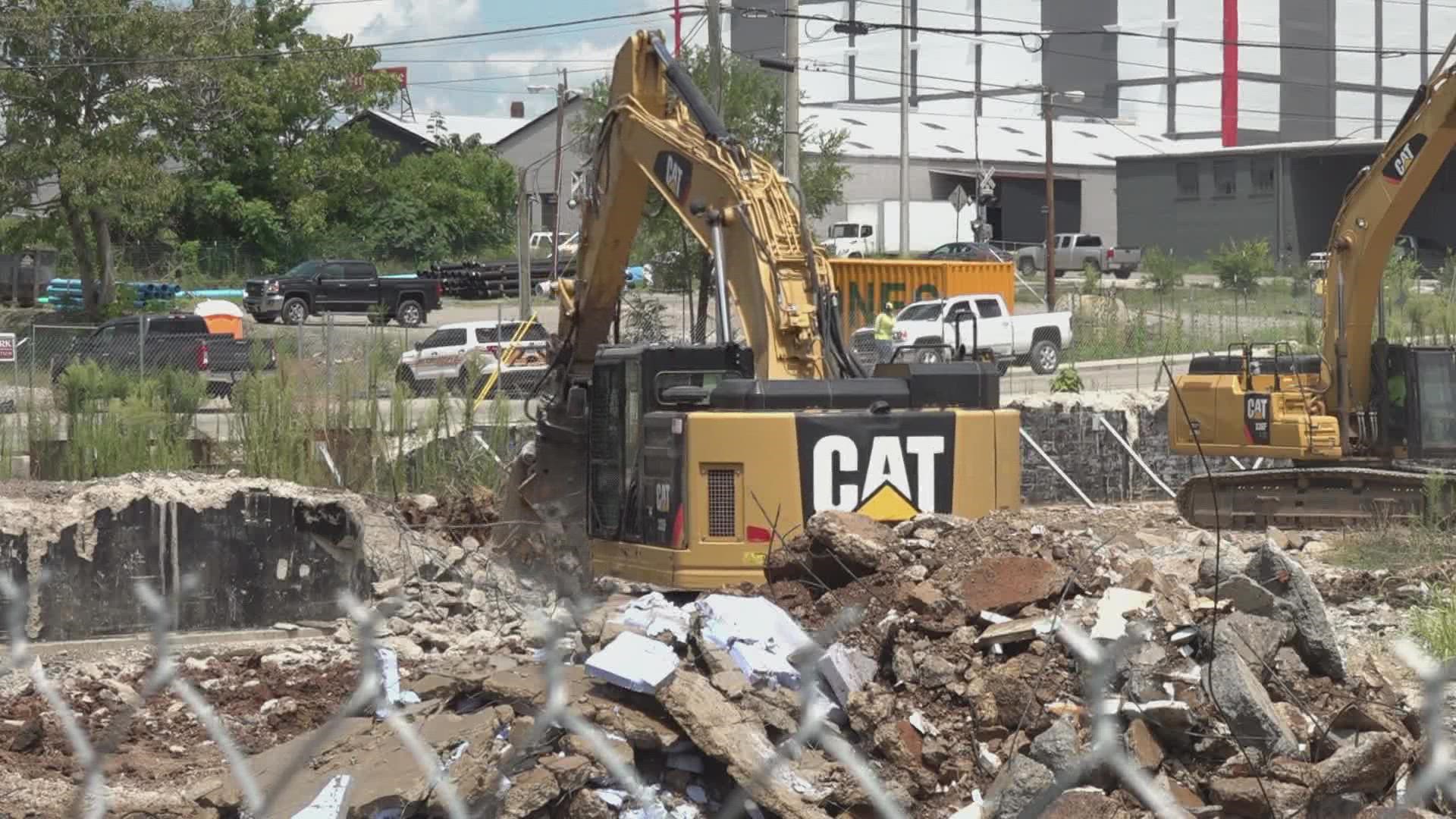KNOXVILLE, Tenn. — The Knoxville City Council voted to approve a plan to cover a potential gap in funding for the proposed downtown stadium.
They voted to expand a special tax district to help pay back a loan by Smokies owner Randy Boyd.
Rising construction, labor and interest costs led city and county officials to brace for a "gap" in funding for the stadium. Previously, Boyd Sports President Doug Kirchhofer told city and county leaders developers wouldn't know the actual price of the stadium until late 2022 or early 2023.
Boyd agreed to cover any potential funding gap by giving the city and county a loan of $20 million.
City and county leaders agreed to pay back the loan through the expanded special tax district. Property taxes from new businesses built in that area would be used to pay back the loan.
Tennessee law allows local governments to pay for improvements to an area using future tax revenues, through TIF-- or Tax Increment Financing.
"We have been rushed, while the team owner and developer have been allowed to take their time," said Councilwoman Amelia Parker. "We can't say benefits will outweigh the costs until we know the costs."
Objections to expanding the TIF district came from public critics of the plan and from members of council, including Councilwoman Seema Singh who originally voted 'no' on an agreement to allow the Knoxville Knox County Sports Authority to issue bonds and pay for the stadium. Singh said she left that meeting with the impression that the cost for the city was already set.
“I feel very much lied to at this point…. and that is a strong feeling for me,” said Singh.
"If Mr. Boyd has $20 million to loan, he has $20 million to contribute to a project directly connected to his baseball franchise," said Councilman Charles Thomas.
“The city is investing about $10 million to $12 million and getting a $100 million stadium,” said Vice Mayor Andrew Roberto during a debate so protracted the council moved to add five-minute speaking time limits on their own members.
Some advocated for delaying the amendment and called for a workshop with community organizations to gauge the costs and benefits of a new agreement. Critics on the council also expressed concerns that nearby landowners would benefit more directly than the community as a whole.
"It's quite clear that there will be winners and losers," said Singh.
The definition of “cost overruns” dominated much of the discussion with some on council noting the final budget for the stadium project has not been set and others arguing any increase in cost fit the definition of a “cost overrun.”
The newly expanded TIF district extends into parts of the Old City.
Changes to the TIF district were approved. Parker, Singh and Thomas voted against it. Still, no development or lease agreements have been signed.
"We need to move on this because we don't have that cost overrun protection in the statement," said Councilman Tommy Smith.
"We certainly do not have the results of a bidding process shared with us, the agreement has not been finalized ... What has the developer been doing over the past year?" said Parker. "I don't know if I can call it governance at this point ... I am embarrassed by how this process has played out."
In November 2021, the Knoxville City Council and the Knox County Commission voted to enter into an interlocal agreement. The agreement allows the Knoxville Knox County Sports Authority to issue bonds, or debt, to pay for the stadium.
On Tuesday, the City Council also voted to amend the interlocal agreement to increase the maximum interest allowed on the bonds to 6%. Leaders expect interest rates on debt to increase because of rising interest rates across the board.

